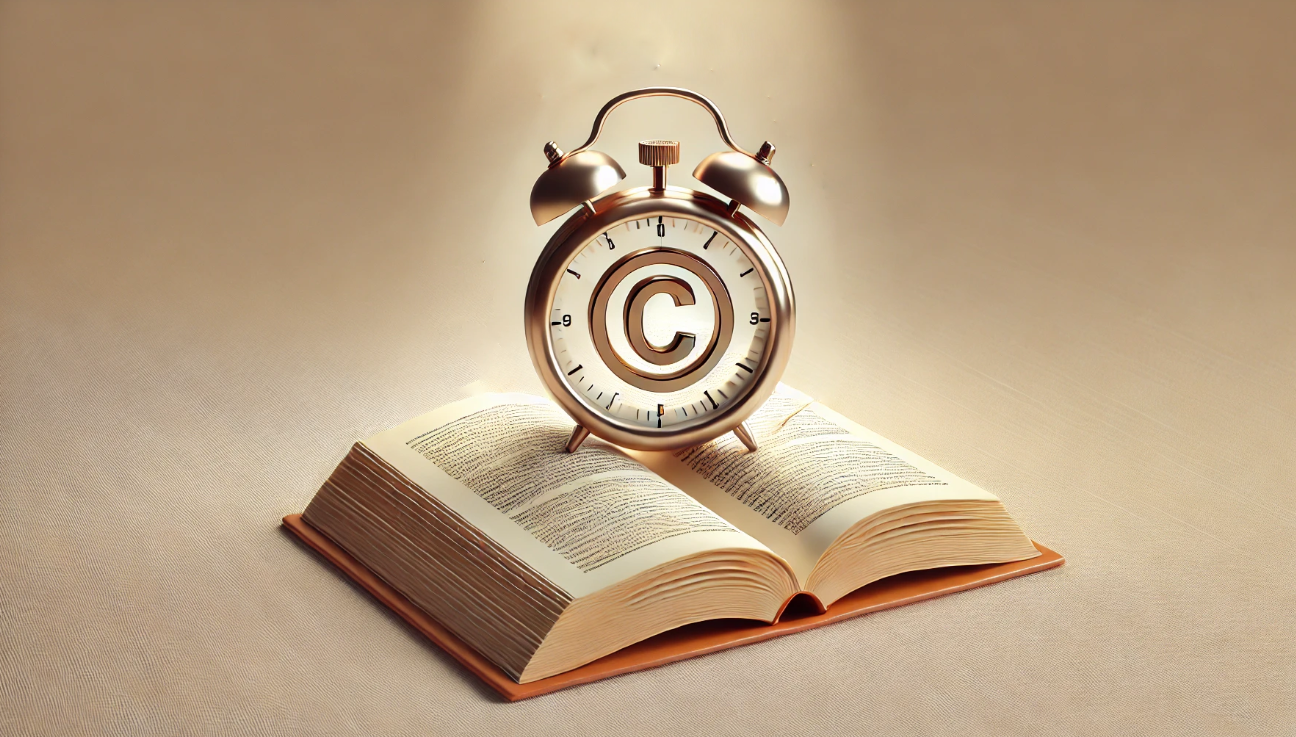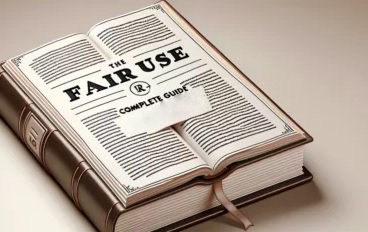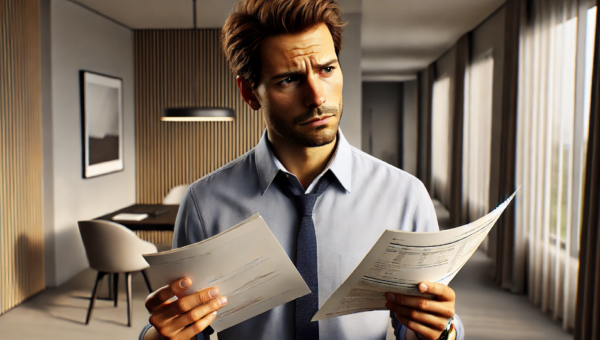Congratulations! You’ve poured your heart and soul into your book, spent countless hours writing, editing, and perfecting it, and now it’s finally out in the world. But as you bask in the joy of being a published author, there’s an important question you might be asking yourself: How long does copyright protection last?
Here’s a startling fact: 70% of self-published authors risk losing control of their intellectual property due to a lack of understanding about copyright law. Copyright protection is a crucial aspect of being an author, especially when you’re self-publishing. It’s what ensures that your hard work remains yours and that no one else can profit from your creativity without your permission. However, how long does copyright protection typically last depends on various factors, and navigating copyright law can seem daunting, filled with legal jargon and complex rules that can leave anyone scratching their head.
Don’t worry! In this article, we’re going to break down everything you need to know about how long copyright protection lasts for your self-published book. We’ll guide you through the ins and outs of copyright duration, explain what it means for your work, and help you understand why it’s so important to keep your intellectual property safe. So, let’s dive in and make sure your masterpiece is protected for as long as it deserves!
What is Copyright Protection?
Before we dive into the nitty-gritty of how long copyright protection lasts, let’s start with the basics: what exactly is copyright protection, and why should you care about it?
Copyright protection is like a protective shield for your creative work. The moment you put your ideas into a tangible form—whether it’s writing, a painting, a song, or in this case, your book—you automatically gain exclusive rights over that work. This means you, as the author, have the exclusive right to reproduce, distribute, perform, and display your work. No one else can legally copy or sell your book without your permission. Sounds pretty powerful, right?
But it’s not just about protecting your work from being stolen. Copyright also allows you to control how your book is used, ensuring that it’s presented to the world in a way that aligns with your vision. Want to turn your book into a movie? License it to a publisher? Or maybe even translate it into other languages? All these possibilities are in your hands, thanks to copyright protection.
In short, copyright isn’t just a legal formality—it’s your ticket to safeguarding your creative rights and making sure your hard work pays off. Understanding how this protection works is the first step in ensuring your book remains exclusively yours.
How Long Does Copyright Protection Last?
Now that you know what copyright protection is and why it’s so important, let’s talk about the big question: How long is the copyright validity period for your self-published book? The answer depends on a few key factors, but don’t worry—we’ll break it down for you.
For most authors, the general rule is pretty straightforward: your book is protected for your entire lifetime, plus an additional 70 years after your death. This means that your work will remain exclusively yours during your lifetime, and after you’re gone, your heirs or whoever you designate will continue to benefit from it for another seven decades. That’s a lot of time to ensure your legacy lives on!
But what if your book is a joint work, created with two or more authors? In that case, copyright protection lasts for 70 years after the death of the last surviving author. So, the clock doesn’t start ticking until the last author has passed away, ensuring that the work is protected for as long as possible.
There are also special rules for works that fall under different categories, such as anonymous and pseudonymous works (where the author uses a pen name), or works made for hire. For these types of works, copyright protection lasts for 95 years from publication or 120 years from the date of creation, whichever comes first. This ensures that even if the author’s identity is unknown, or if the work is created as part of a larger project for an employer, it still enjoys robust protection.
So, whether you’re writing under your real name, a pen name, or collaborating with others, there’s a good chance your work will be protected for many decades to come. Understanding these timelines is essential for managing your intellectual property and planning for the future of your creative work.
The Role of the Copyright Office
Now that you’ve got a handle on how long your copyright protection lasts, you might be wondering: Do I need to do anything special to ensure my book is protected? This is where the U.S. Copyright Office comes into play, and while registering your work isn’t required, it’s a step that can give you extra peace of mind and significant legal benefits.
The moment your book is written down, it’s automatically protected by copyright. But registering your book with the Copyright Office provides a public record of your ownership, which can be incredibly valuable if you ever need to enforce your rights. Think of it as having official paperwork that says, “This book is mine, and here’s the proof!”
Registration with the Copyright Office also opens the door to additional protections. For instance, if someone infringes on your copyright—say, by copying or distributing your book without permission—you’ll need to have your work registered if you want to bring a lawsuit and claim statutory damages or attorney’s fees. Without registration, your legal options can be more limited, which could make it harder to defend your rights effectively. Additionally, if the author’s identity is revealed in the Copyright Office records, the standard protections and durations for those categories of works apply, which include durations of 95 years from publication or 120 years from creation for works made for hire.
The process of registering your book is straightforward. You’ll fill out a form, pay a small fee, and submit a copy of your work to the Copyright Office. Once registered, your book is listed in the public records, and you’re provided with a certificate of registration, which can serve as your legal proof of ownership.
While it might seem like an extra step, registering with the Copyright Office is a smart move for any author serious about protecting their work. It’s a small investment of time and money that can provide you with powerful legal backing, ensuring that your book remains yours in every sense of the word.
Federal Copyright Law: An Overview
To really understand the protection your book enjoys, it helps to have a basic grasp of the laws that govern copyright in the United States. Federal copyright law is what makes sure your rights as an author are recognized and enforced nationwide. But how did these laws come to be, and what do they mean for you today?
The foundation of modern copyright law in the U.S. is the Copyright Act of 1976. This act was a major update to earlier laws and set the standard for how long copyright protection lasts. One of its most important contributions was establishing the “life of the author plus 70 years” rule that we mentioned earlier. This act aimed to simplify and extend copyright protection, ensuring that creators and their heirs could benefit from their work for as long as possible.
But copyright law didn’t stop evolving in 1976. Over the years, Congress has passed additional legislation to further extend and clarify copyright terms. One of the most significant changes came with the Sonny Bono Copyright Term Extension Act in 1998, which added 20 more years to the existing term, making sure works stay protected longer. This extension reflects a broader trend of enhancing the protection of intellectual property in the U.S., making sure that authors and creators get the most out of their work. The copyright period can be calculated as either 120 years from creation or 95 years from the year of first publication, depending on which timeframe expires first.
Federal copyright law also governs how works eventually enter the public domain—meaning when they’re no longer protected by copyright and can be freely used by anyone. Works published before January 1, 1978, have different rules, often involving an initial term and the possibility of renewal. Renewal registration allows these works to extend their copyright terms through renewal registration. Once a work’s copyright expires, it enters the public domain, where it can be used without restriction.
In essence, federal copyright law is the backbone of your rights as an author. It’s designed to protect your work, ensure you have control over how it’s used, and provide you with the benefits of your creativity for as long as possible. Understanding these laws helps you navigate the complex world of intellectual property with confidence, knowing that the law is on your side.
Factors Influencing Copyright Duration
While the basic rules for copyright protection are straightforward, several factors can influence how long your book remains protected. Knowing these factors can help you better understand the specific duration of your copyright and how it might apply to your work.
One of the most significant factors is the date your book was created and published. If your work was published before January 1, 1978, it might be subject to different rules, involving an initial term of protection and a possible renewal term. Any works published prior to a certain year, such as 1923, automatically have their copyrights expired after a defined period, allowing them to be accessed freely. Works created after this date fall under the “life of the author plus 70 years” rule, or the 95/120 years rule for works made for hire or anonymous/pseudonymous works.
The identity of the author also plays a role. For works created by an individual author, the duration of the copyright is based on the author’s life. However, if your book is a “work made for hire” (meaning it was created as part of your employment), or if it’s an anonymous or pseudonymous work, the duration is determined by the date of creation or publication, rather than the author’s lifespan. Copyright laws can be complex, and understanding various forms of intellectual property rights, including copyright, patents, and trademarks, is crucial. Consulting a lawyer and accessing resources to learn about these protections can be beneficial.
In the case of joint works, where two or more authors have contributed, copyright protection lasts for 70 years after the death of the last surviving author. This means that as long as at least one author is still living, the work is fully protected.
Understanding these factors ensures you have a clear picture of how long your work is safeguarded. It’s not just about when you created your book, but also how and under what circumstances it was created. These details can significantly impact the duration of your copyright, helping you plan for the future and manage your intellectual property effectively.
What Happens When Copyright Protection Ends?
So, what happens when your copyright protection finally runs out? It’s an important question because, like all good things, copyright protection doesn’t last forever. Once it ends, your book enters what’s known as the public domain—and this transition has significant implications for you and your work.
When a work enters the public domain, it means that it is no longer protected by copyright, and anyone can use it freely without seeking permission from the original copyright owner. This includes reproducing, distributing, performing, and even modifying the work. In other words, your book becomes a part of the shared cultural and intellectual heritage that anyone can access and use as they see fit.
For authors, this can be a bittersweet moment. On one hand, your work is no longer exclusively yours, and you lose the ability to control how it’s used. On the other hand, entering the public domain can give your book new life, as it can be adapted, shared, and celebrated by a wider audience in ways that might not have been possible before.
It’s also worth noting that once a work is in the public domain, it’s there for good—there’s no going back. This is why understanding the timeline of your copyright protection is so crucial. It allows you to make informed decisions about how to manage your rights, whether it’s considering a renewal (if applicable) or making plans for how your work might be used once it’s no longer protected. For joint works, the copyright extends 70 years after the last surviving author’s death, which can affect when the work transitions to the public domain.
In the end, the expiration of copyright protection marks the beginning of a new chapter for your book. While your exclusive rights may end, your work continues to exist and can take on a life of its own, contributing to the broader cultural landscape for generations to come.
Securing Your Rights as an Author
Navigating the world of copyright can seem daunting, but understanding how it works is essential for protecting the creative work you’ve poured your heart into. From the moment you bring your ideas to life in a tangible form, copyright protection kicks in, giving you exclusive rights over your book. Knowing how long this protection lasts, and what factors can influence its duration, ensures that you can make informed decisions about your intellectual property.
Whether you’re considering registering your work with the Copyright Office, planning for the future of your book, or simply wanting to safeguard your rights as an author, being proactive is key. Remember, your book is more than just words on a page—it’s your legacy, and it deserves to be protected.
As you move forward in your journey as a self-published author, keep in mind the importance of understanding copyright law and how it applies to your work. By doing so, you’ll ensure that your creative efforts are safeguarded for as long as possible, allowing you to focus on what you do best: creating stories that resonate with readers, now and for years to come.
FAQs – How Long Does Copyright Protection Last
Q1: Do I need to renew my copyright after a certain period?
No, you do not need to renew your copyright for works created after January 1, 1978. Under the Copyright Act of 1976, protection is automatic and lasts for the author’s lifetime + 70 years without requiring renewal. However, works published before 1978 were originally granted a 28-year copyright term, with an option to renew for an additional 67 years (totaling 95 years). If a renewal wasn’t filed, the work may have entered the public domain.
Q2: What happens if someone infringes on my copyright, and how can I enforce my rights?
If someone copies, distributes, or profits from your book without permission, you have several options:
- Send a Cease-and-Desist Letter – A formal request asking them to stop infringing.
- Issue a DMCA Takedown Notice – If the infringement is online, you can request platforms like Amazon, YouTube, or Google to remove the content.
- File a Lawsuit – If your copyright is registered with the U.S. Copyright Office, you can sue for statutory damages and legal fees. If it’s not registered, you can still sue but may only claim actual damages.
Registering your work before infringement occurs gives you stronger legal protections!
Q3: Can I sell or transfer my copyright to someone else?
Yes! Copyright is transferable, meaning you can:
- Sell it outright (assign all rights to another person or company).
- License it (allow others to use your work while keeping ownership).
- Bequeath it (pass it to heirs in your will).
All transfers should be in writing to be legally valid. If you sell your copyright, you lose control over how your work is used.
Q4: How does copyright differ from a trademark or patent for my book?
- Copyright protects the expression of an idea (your book’s content).
- Trademark protects brand elements (like your book title, series name, or logo).
- Patent protects inventions (not relevant for books).
If you want to protect your book title, you may need a trademark, as titles are not copyrightable.
Q5: Can I copyright book ideas, titles, or characters separately?
- Ideas – No, copyright only protects the specific expression of an idea, not the idea itself.
- Titles – No, book titles cannot be copyrighted, but they may be trademarked if they are unique and used in a series.
- Characters – Sometimes. If a character is highly distinctive and original, they may qualify for copyright protection (e.g., Sherlock Holmes).
For stronger protection of titles and characters, consider trademarks or licensing agreements.
Q6: Does copyright protection differ for e-books and physical books?
No, copyright applies equally to both e-books and physical books. The format does not affect copyright protection. However, digital rights management (DRM) can be added to e-books to prevent unauthorized sharing or copying.
Q7: How does international copyright law affect my self-published book?
Copyright laws vary by country, but the Berne Convention (an international copyright agreement) ensures that copyright protection applies across 181+ member countries. This means your book is automatically protected in many countries without needing separate registrations. However, some countries may have different copyright durations, so check local laws if you plan to publish internationally.
Q8: What happens to my book’s copyright if I publish it under a pseudonym?
If you publish under a pseudonym (fake name) and your real identity is not publicly known, copyright lasts 95 years from publication or 120 years from creation (whichever is shorter). If your real name is revealed in the U.S. Copyright Office records, the standard life + 70 years rule applies.
Your Publishing Journey Awaits – Start Now






